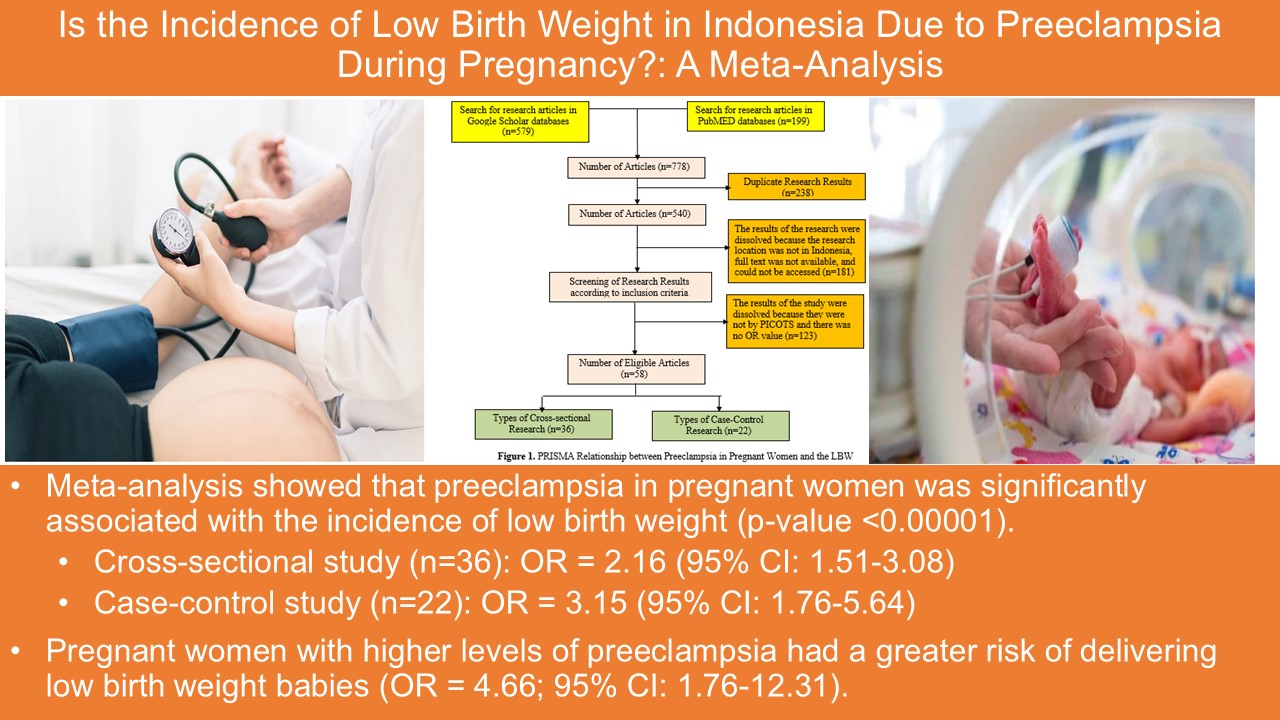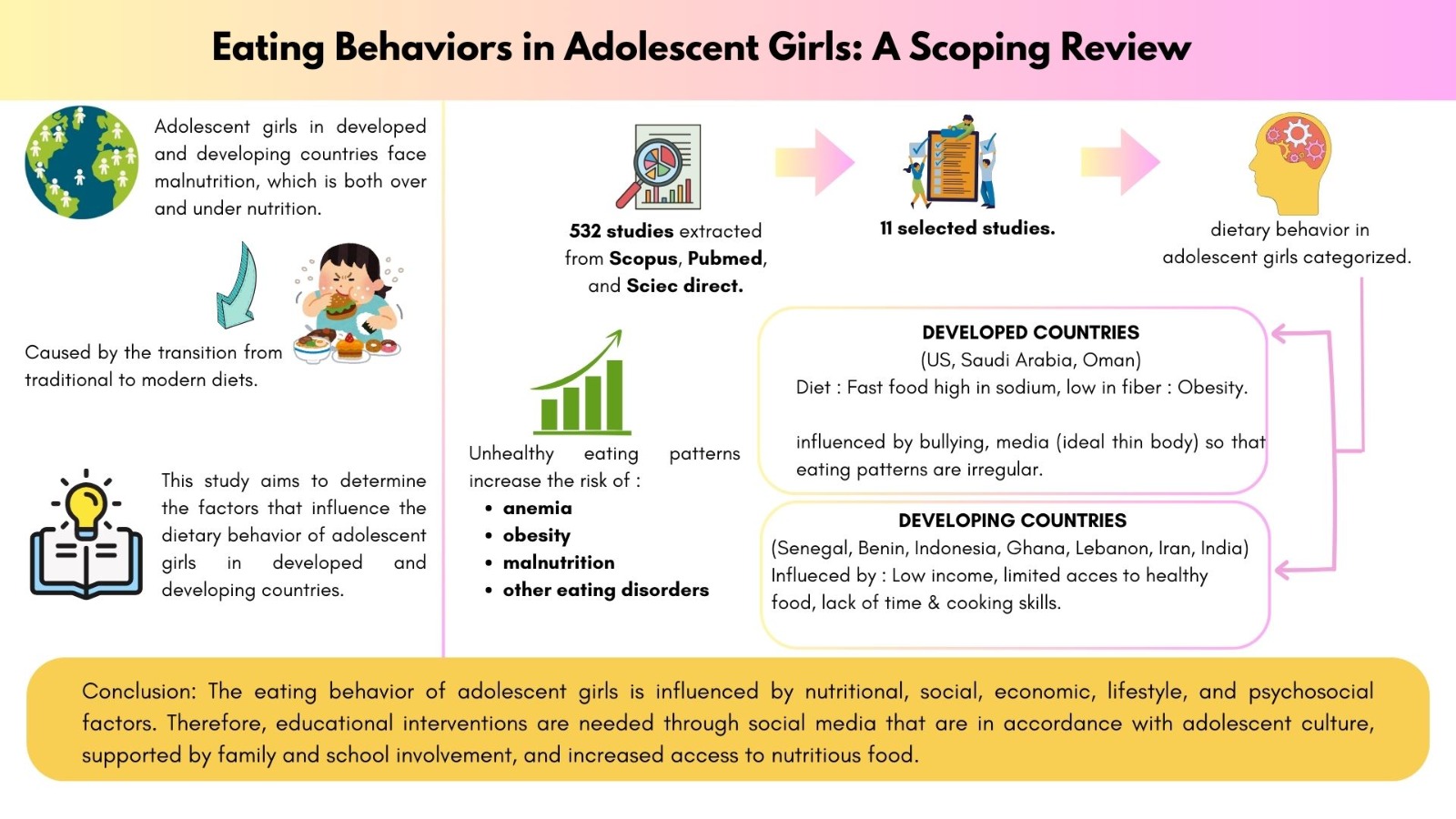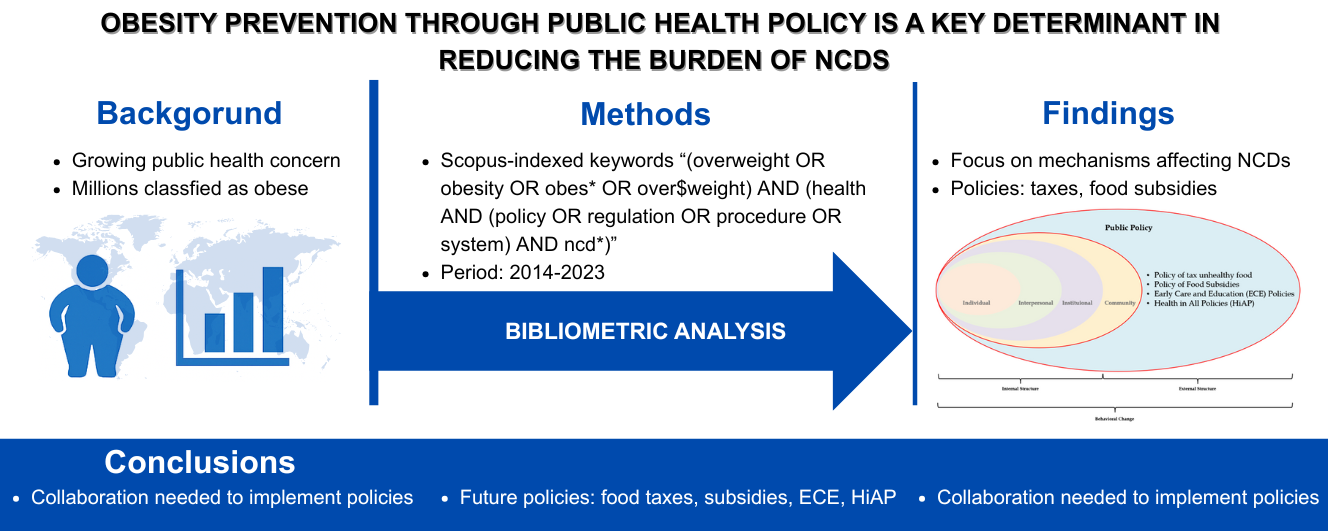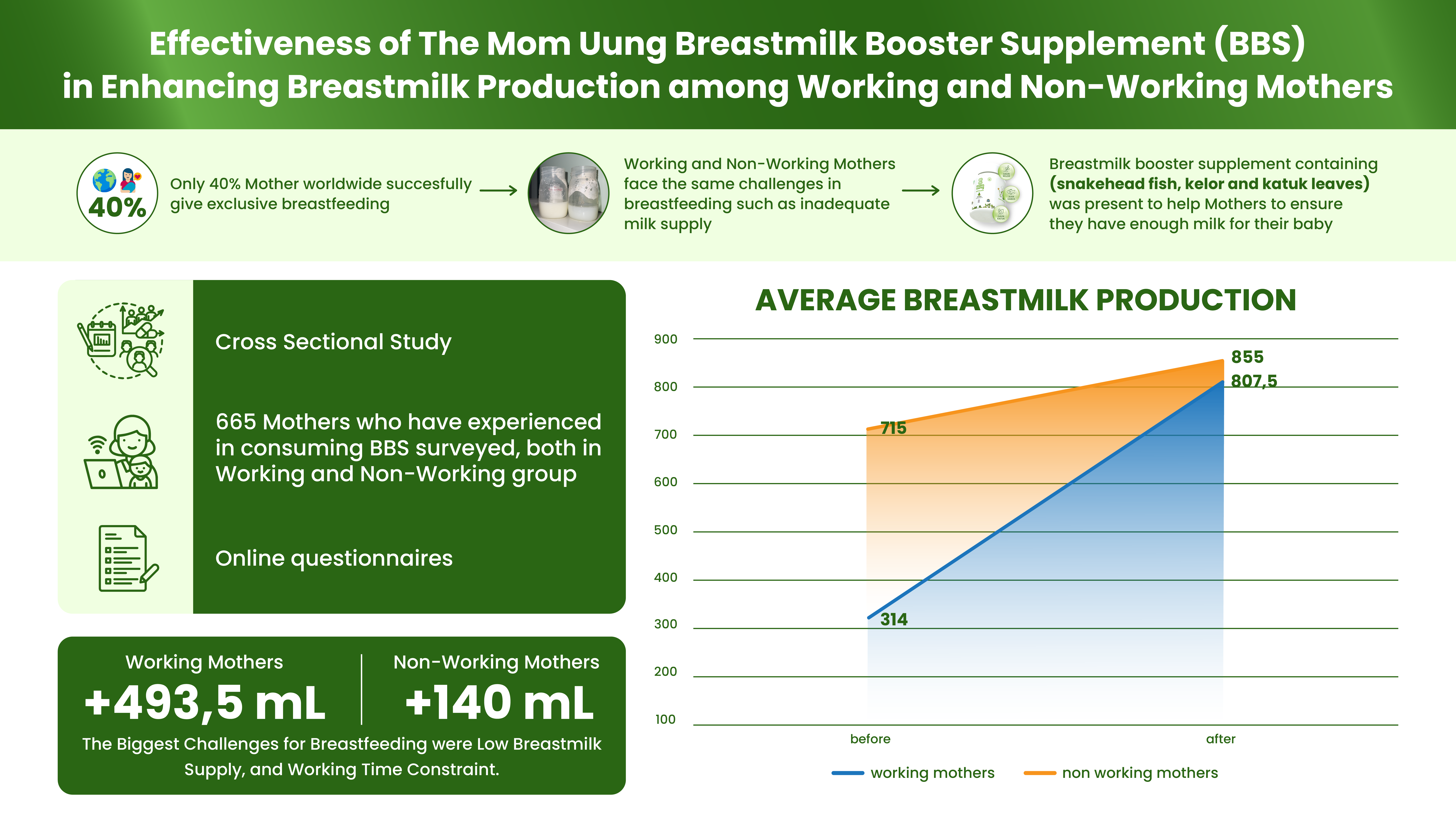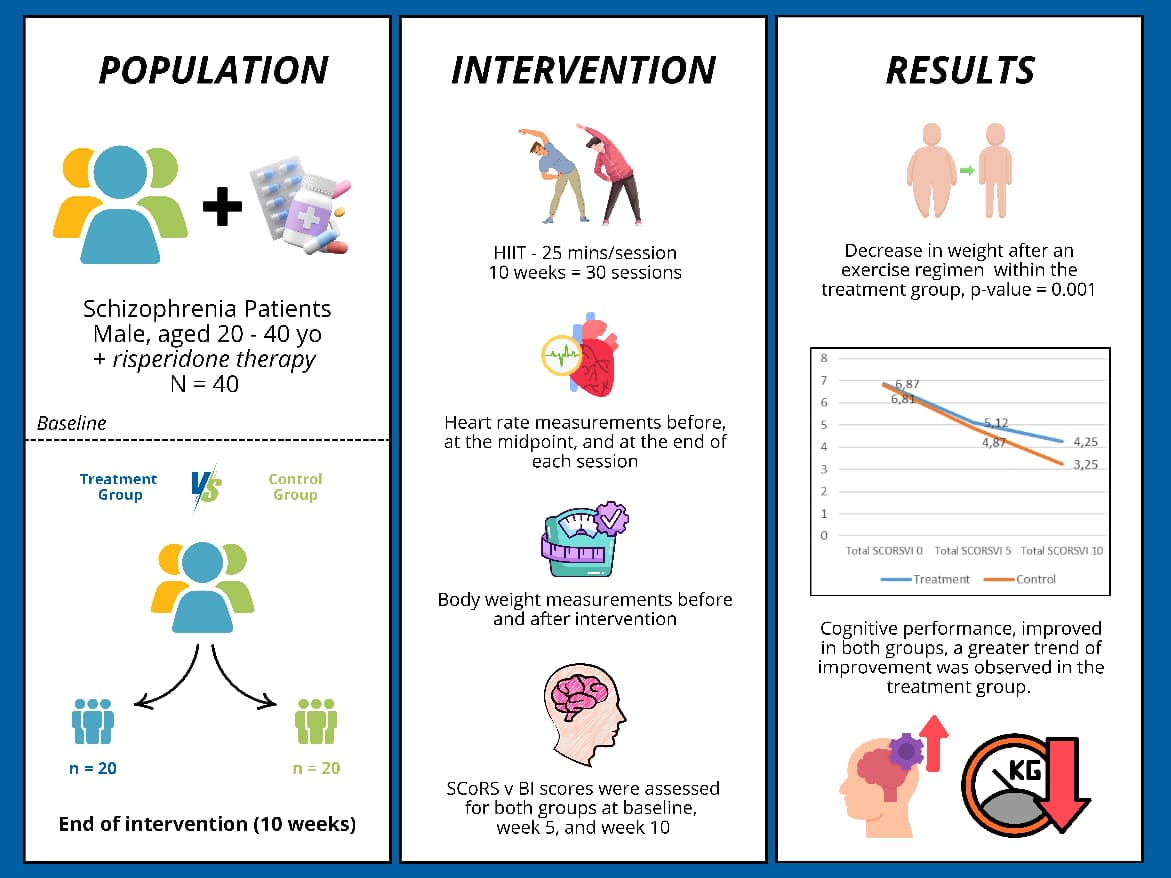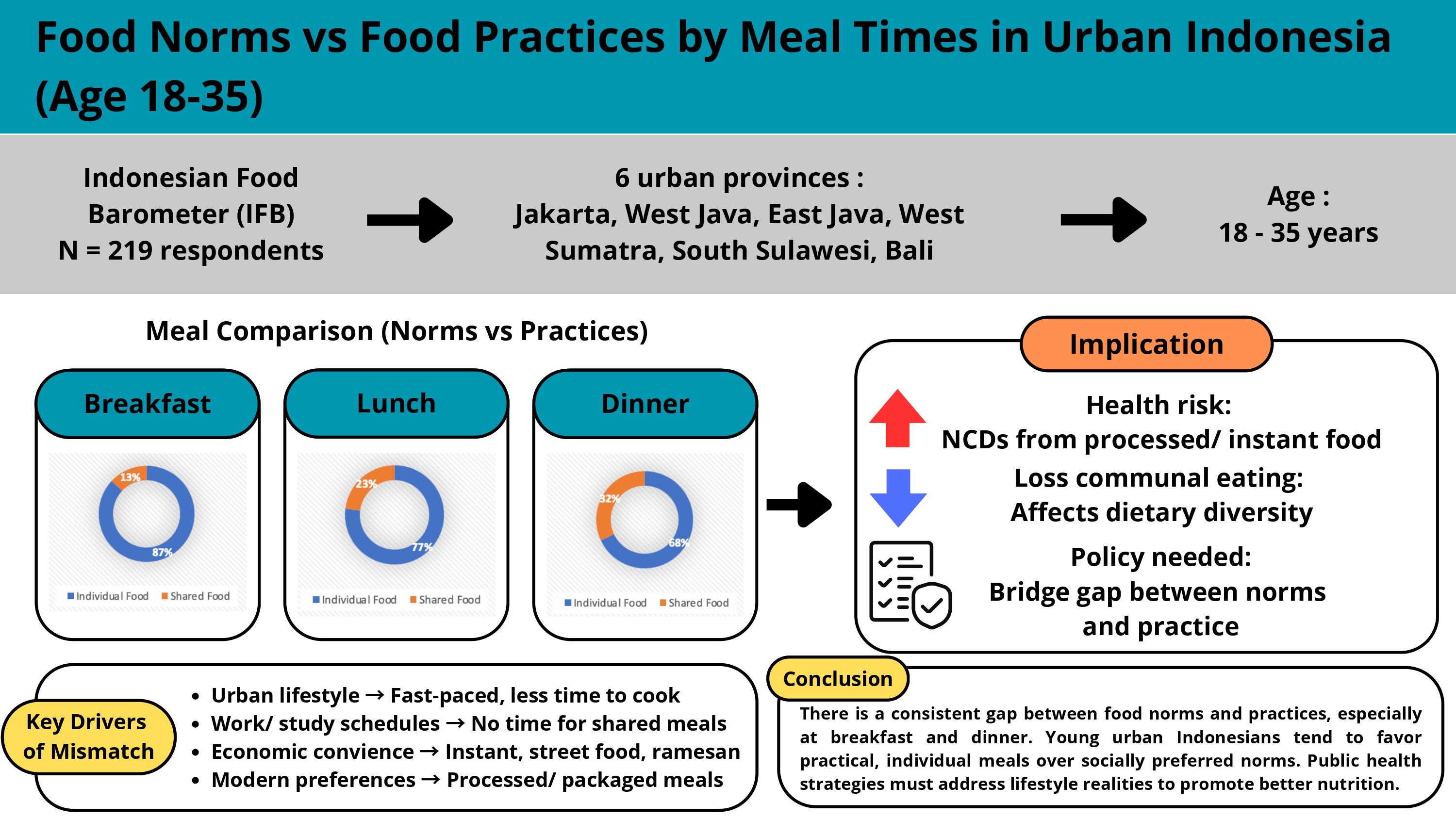Comprehensive Breastfeeding Education: An Integration to Support Successful Breastfeeding Practice
Downloads
Breast milk is the best food for newborns, but the coverage of exclusive breastfeeding worldwide is only 40% (WHO, 2018). Babies who are not breastfed more susceptible to infectious diseases. The incidence of infants suffering from recurrent infectious diseases will result in malnutrition. The success of exclusive breastfeeding is largely determined in the first week of birth period as a critical phase in breastfeeding, so it is necessary to support comprehensive breastfeeding. The purpose of this study was to determine the effect of comprehensive breastfeeding education on the success of breastfeeding postpartum mothers in the Midwifery Independent Practice in Bengkulu City. The method used in this study was a quantitative pre-experiment with a two-group pre-posttest approach. The sample was taken by non-probability sampling by accidental sampling, in total 30 respondents. The group that was given the intervention was in the form of education in classes for pregnant women using a comprehensive breastfeeding education book, while the comparison group was given book only. The research variables studied were breastfeeding success (knowledge, attitudes, and breastfeeding practices) and external variables (age, parity, education, early initiation of breastfeeding, and husband support). Analysis test using Wilcoxon and Mann Withney and Ancova. The results showed that there was a significant effect of comprehensive breastfeeding education on attitudes, knowledge of successful breastfeeding practices (p<0.05). The implications of this research can be used as a reference as a development effort to increase breastfeeding success.
Astuti S. (2015). Postpartum and Breastfeeding Midwifery Care. Jakarta: Erlangga.
Bryanto J., Beck C.T., & Montelpare W. (2013). Postnatal Parental Education for Optimizing Infant General Health and Parent-Infant Relationship. Cochrane Database Syst Rev, 21(1). doi: 10.1002/14651858.CD004068.pub4
Bengkulu City Health Office. (2018). Health Profile of Bengkulu City 2018. Bengkulu City Health Office.
Dorland W.A. N. (2010). Dorland Medical Dictionary 31st edition. Jakarta: EGC.
Fauziandari E. N. (2019). Mother Social Factors and Implementation of Early Breastfeeding Initiation in Successful Breastfeeding in the First Two Months of Breastfeeding. Proceedings of the National Seminar on Poltekkes Karya Husada Yogyakarta 2019, 105-12.
Harahap D., Indriati G. & Wofers R. (2019). The Relationship of Prelacteal Feeding To The Incidence Of Pain In Neonates. JOM FKp, 6(1), 72–80.
Indonesian Ministry of Health. (2015). Indonesia Health Profile 2014. Jakarta: Indonesian Ministry of Health
Indonesian Ministry of Health. (2018). Indonesia Health Profile 2018. Jakarta: Indonesian Ministry of Health
Liliana A. Hapsari E.D. & Nisman W.A. (2017). Effect of Lactation Counseling on Knowledge of Mother Ability and Success in Breastfeeding. Journal of Nursing Respati Yogyakarta, 4(2), 189-193.
Mizawati A. & Patroni R. (2019). The Influence of Pregnancy Class in Improving Knowledge and Skills of Pregnant Mother About Maternal and Child Health. ICIHC, January 2019. doi: 10.2991/icihc-18.2019.21
Mesters I., Gjisbers B., Bartholomew K., Knottnerus J. A., & Van Schayck, O.C. (2013). Social Cognitive Changes Resulting From an Effective Breastfeeding Education Program. Breastfeeding Medicine, 8(1), 23-30. doi:10.1089/bfm.2012.0011
Montgomery K.S. (2011). Maternal-newborn Nursing: Thirteen Challenges that Influence Excellence in Practice. The Perinatal Education Journal, 10(1), 31-40.
Mozingo J. N., Davis M. W., Drooleman P.G., & Merideth A. (2000). It wasn't working. Women's Experiences with Short-term Breastfeeding. MCN Am J Matern Child Nurs, 25(3), 120-6.
Nurbaeti I., & Lestari K. B. (2013). Effectiveness of Comprehensive Breastfeeding Education on the Success of Postpartum Breastfeeding. Padjadjaran Journal of Nursing, v1(n2), 88–98. doi:10.24198/jkp.v1n2.4
Yuliawati R., Kurnisari L., & Maryam S. (2018). Relationship between Education and Family Support with the Failure of Exclusive Breastfeeding. Journal of Health of Studies, 3(2): 79-86.
Riordan J., Gross A., Angeron J., Krumwiede B., & Melin J. (2000). The Effect of Labor Pain Relief Medication on Neonatal Sucking and Breastfeeding Duration. Journal of Human Lactation, 16(1), 7-12.
Basic Health Research Survey. (2018). Basic Health Research Survey 2018. Jakarta: Indonesian Ministry of Health.
Roesli U. (2015). Breastfeeding myths. Papers in the Seminar on Recent Studies on Breastfeeding. Bali: FAOPS-Perinasia
Saputra and Lasmini. (2015). Effect of Early Initiation of Breastfeeding on Time of Expulsion and Changes in Meconium Color and Physiological Jaundice Incidence. JIK, 9(2). doi:10.26891/JIK.v9i2.2015.87-94.
Tjung K. M., Picauly, I., & Riwu, R. R. (2020). Exclusive Breastfeeding Determinants of Non-working Mothers. Lontar: Journal of Community Health, 2(1), 1–11. doi: 10.35508/ljch.v2i1.2207
WHO. (2009). Infant and Young Child Feeding: Model Chapter for Textbooks for Medical Students and Allied Health Professionals. Retrieved from https://www.ncbi.nlm.nih.gov/books/NBK148955/#_session7_s9_
World Breastfeeding Trends Initiative (WBTI). (2015). Associated Report Documents. Retrieved from https://www.worldbreastfeedingtrends.org /

This work is licensed under a Creative Commons Attribution-NonCommercial-ShareAlike 4.0 International License.
- MEDIA GIZI INDONESIA Journal is the copyright owner of all materials published on this website.
- The formal legal provisions for access to digital articles of this electronic journal are subject to the terms of the Creative Commons Attribution-NonCommercial-ShareAlike license (CC BY-NC-SA 4.0), which means that MEDIA GIZI INDONESIA Journal and readers reserve the right to save, transmit media / format, manage in database, maintain, and publish articles as long as it continues to include the name of the Author.
- Printed and published print and electronic manuscripts are open access for educational, research and library purposes. In addition to these objectives, the editorial board shall not be liable for violations of copyright law.


2.png)















